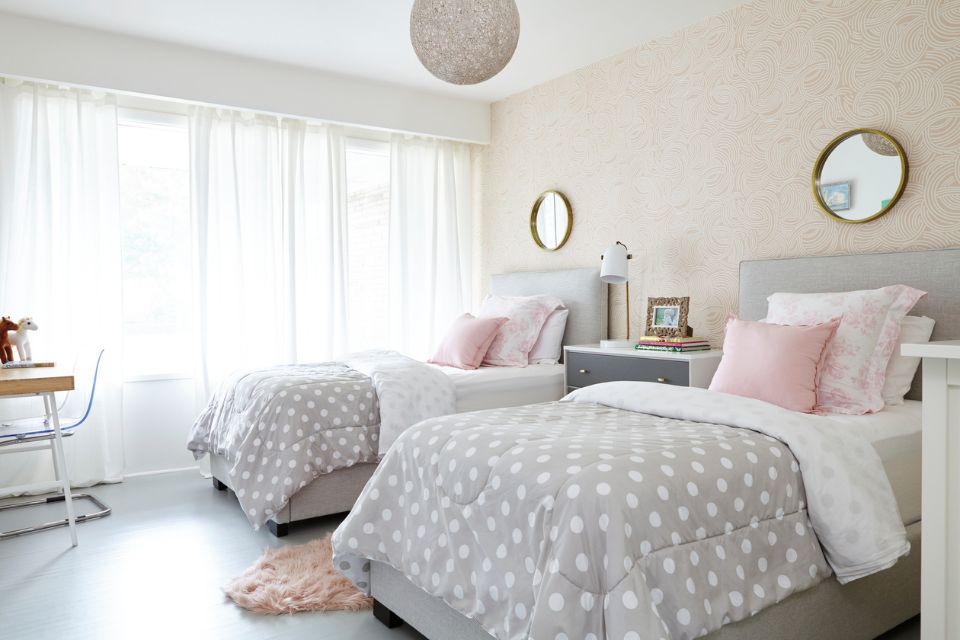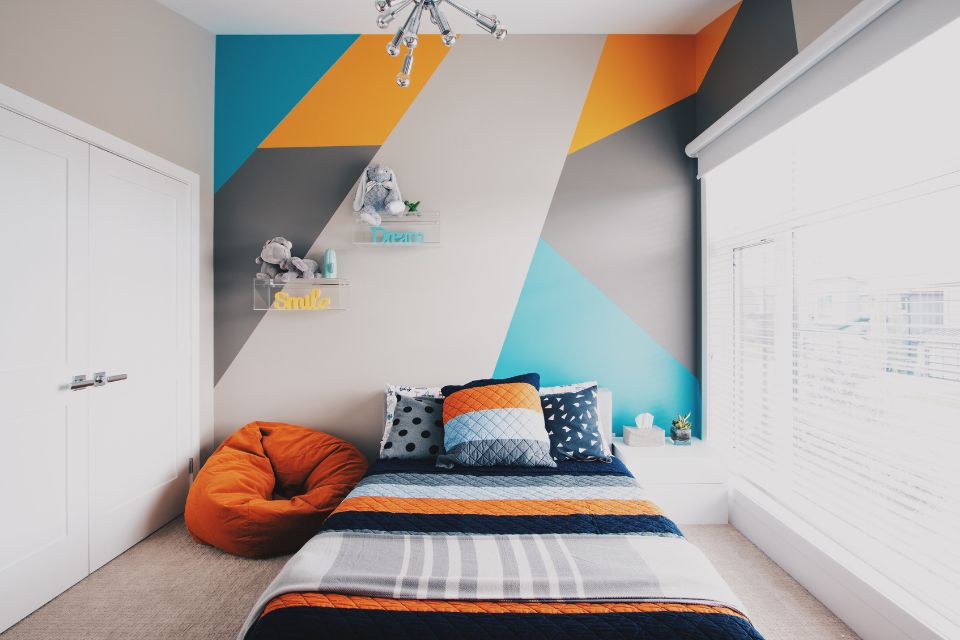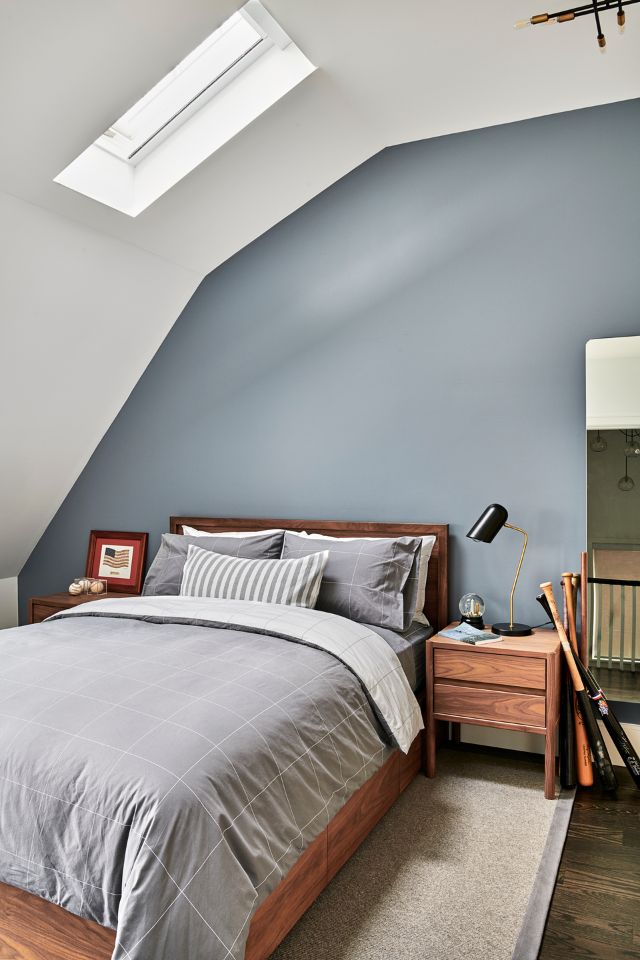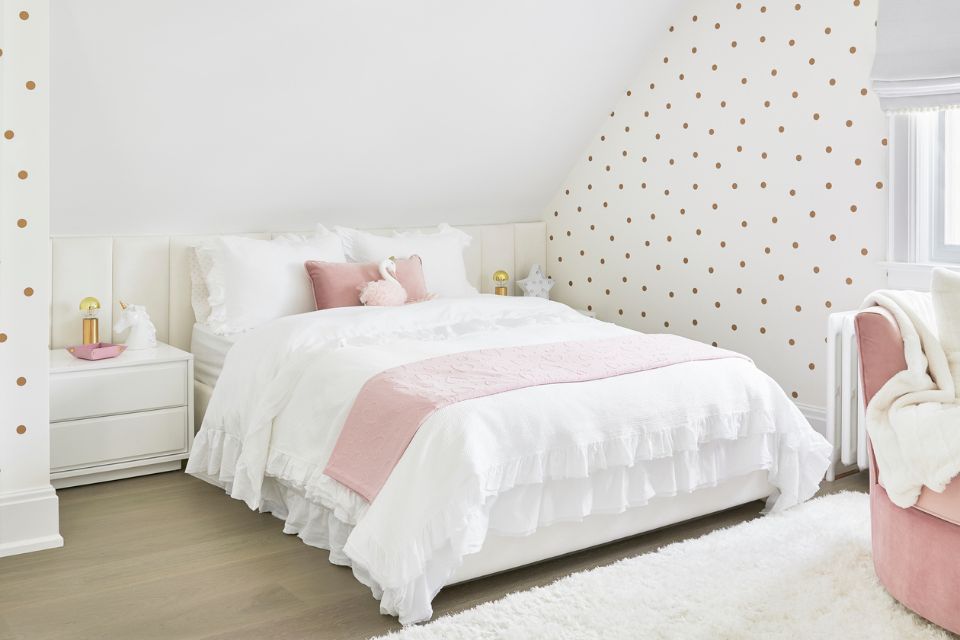3 Tips for Creating a Space that Grows with Your Child
Jun 23, 2022 | Carpet One Floor & Home
When it comes to redecorating, a complete room makeover can be a costly and time-consuming endeavor. Luckily, redecorating is not an everyday project for most households. Both amateur and professional interior designers alike work hard to create a design that will stand the test of time and ensure that major renovations are few and far between.

Design by KATE DAVIDSON Photography by MIKE CHAJECKI
Designing for longevity is the norm for most designers, but when it comes to children’s rooms this can become more difficult. Children grow and change rapidly – and so does their design taste.
From the pink striped nursery to the maturing teenage haven, your child will have a wide range of wants and needs from their space as they grow up. Rather than doing a complete design overhaul every time their style changes, we’ve compiled three tips to help you create a space that easily grows right alongside your child.
1. Neutral Color Palette

Design by KATE DAVIDSON Photography by VALERIE WILCOX
Regardless of how old your child is, it’s inevitable that their preferences will change as they age. Your 5-year-old who loved pink may grow to love blue instead, or your baseball obsessed 8-year-old may grow to love the high-school drama club. One of the easiest ways to ensure you won’t have to do a complete overhaul of their space when their interests change is by sticking to a neutral color palette for major design elements like the walls and the floors.
By using neutral colors and patterns for the major elements, you can add in smaller décor that fits into their interests and preferences in that moment. When they eventually grow into a new phase of life, you can easily replace the smaller items with new elements to reflect their maturity but save yourself the headache of having to redo the entire space.
2. Keep the Theme General

Design by LOUIS DUNCAN-HE
Another easy way to ensure your child’s space grows with their interests is to choose a general theme. Rather than doing a specific theme, like Disney or a sports team, consider choosing a pattern to base the room around. A simple pattern can add enough color and interest to appease your child, but also allows them the space to grow and change within their room.

Design by SARA BEDERMAN Photography by STEPHANI BUCHMAN
Even when your child is an infant, rather than a bright pink or blue nursery, consider a neutral pattern or theme that can grow with your child from the crib to their first big-kid bed and far beyond.
3. Versatile Furniture

Design by SARA BEDERMAN Photography by STEPHANI BUCHMAN
Choosing the right furniture is key to creating an interior design that grows with your child. When choosing major elements, like beds, dressers, etc. it’s important to think not only about what your child needs now, but also what their needs are going to be in the future. Even if your child is still young, you know that eventually they’ll grow out of the twin bed you’re thinking of getting to transition out of the crib. Rather than wasting money on something you know will eventually need to be replaced, consider instead going right for the big bed, and using things like detachable railings to keep them safe as they grow into it.

Design by KATE DAVIDSON Photography by VALERIE WILCOX
Beds are not the only furniture element that can grow with your child. Consider getting dressers, armoires, etc. that have enough room to fit adult clothes, not ones that are designed specifically for children. Even if your child isn’t yet in school, incorporate a desk into your design so that they’re ready when they do –plus this can double as an arts and crafts space in the meantime! You’ll be happy not to have to find a place for it when they start bringing home assignments, and they’ll be happy to have an extra space to draw, read or whatever else they want until that day.
Looking for more kid-friendly design ideas? Check out our latest blog on “How to Make a Reading Nook for Kids” and explore our latest issue of Beautiful Design Made Simple magazine.